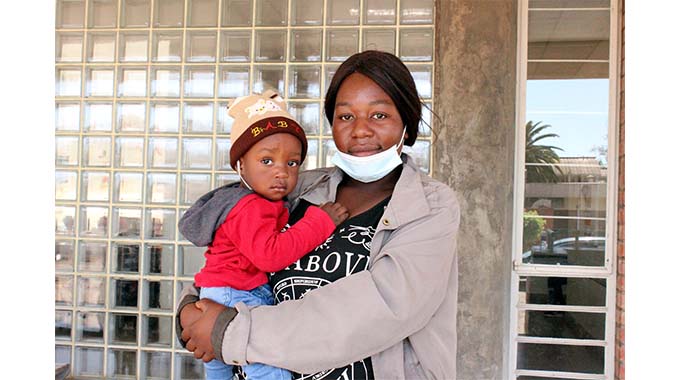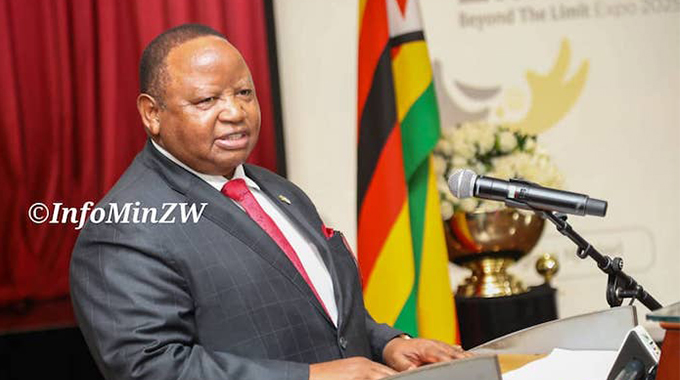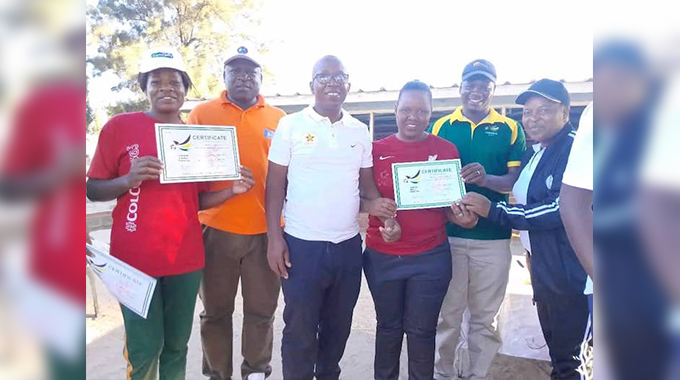WATCH: Mpilo gives children a better step

Flora Fadzai Sibanda, [email protected]
MS ANET Dlamini (25) said she could not believe her eyes when doctors showed her son’s deformed legs at the labour room which was later explained as clubfoot.
After going through counselling, Ms Dlamini realised that if she put all her effort in taking her son for checkups he would be fine as time went on.
Now 18 months later her son’s foot has been corrected, although he still uses braces.
Clubfoot is a congenital (by birth) deformity in which the affected foot appears rotated internally at the ankle, it has no known cause and can be treated.

Parents of children with clubfoot follow proceedings during World Clubfoot Day commemorations at Mpilo Central Hospital yesterday (Picture by Rejoyce Sibanda)
“When the doctors told me my son had a clubfoot at the labour room I did not understand what it was and I asked them to show me what they meant. When I saw his little legs which were deformed I was really hurt and did not understand why my son would be born with such a deformity.
“I then went to CURE hospital after hearing how they help children with bone deformities. CURE referred me to Mpilo and I was skeptical at first because of the stories we hear about Mpilo, but I am happy I came here because it was the best decision l made for my son,” she said.
The woman said after speaking with matrons at Mpilo she was told her son would undergo three stages so that he can be able to walk properly.
She said in the first stage her son’s legs were put into plaster casts to be strong and be straightened.
Ms Dlamini said next was the tenotomy procedure.
Tenotomy is a procedure used to correct tendon issues throughout the body, but it’s most commonly performed on tendons in your feet and ankles.
The procedure then moved to bracing where her son is currently at now.
“My son’s legs are now fine, but I have been advised not to remove him from braces because it might further delay his healing. He wears the braces two hours a day and I was told he will be moved after three months to wearing them only when he is sleeping. The past few months have been hard because he would be in pain from the physiotherapy we would do and the plaster they would put him in. But I am happy he is now able to talk without the braces, something I never thought would happen,” she said.
Over 200 children have been treated for clubfoot at Mpilo since 2014 when the hospital opened its doors for children who are born with the deformity.
The service is for free after Government partnered with Zimbabwe Sustainable Clubfoot Programme.
Ms Dlamini is one of the parents who gathered at Mpilo hospital yesterday to commemorate World Clubfoot Day.
The day is commemorated on June 3 every year.
Parents shared their success stories with many praising the hospital for the work it is doing for children born with the deformity.
Mrs Angeline Ndlovu from Gokwe in Midlands Province said when her family members and community realised her son had been born with a clubfoot she was advised to go and seek help from traditional healers.
She said because she had received counselling she did not go through that path as she knew it would put her son through trauma.

World Clubfoot Day commemorations at Mpilo Central Hospital – Ms Angeline Ndlovu
“I am glad that when Gokwe transferred me to Mpilo because my son’s condition was severe l listened to the doctors. His legs are now fine and everything was done for free. To all mothers who have children with clubfoot it’s not the end of the world and it can be fixed if a person follows all the procedures that are advised by doctors,” said Mrs Ndlovu.
The chief therapist and coordinator of clubfoot clinic at Mpilo, Mrs Audrey Ncube said there are no symptoms to the deformity during pregnancy and no exact cause has been established.
She said services at most hospitals are for free and parents should take their children to health institutions so that they can be assisted.
She said the sooner a child starts treatment the faster they will get better.

“The only challenge we get is that parents tend to stop coming for treatment once they think their children are getting better. And that slows down progress because if a child stops being treated before the clubfoot has been permanently corrected they will go back to the way they were,” she said. —@flora_sibanda












Comments